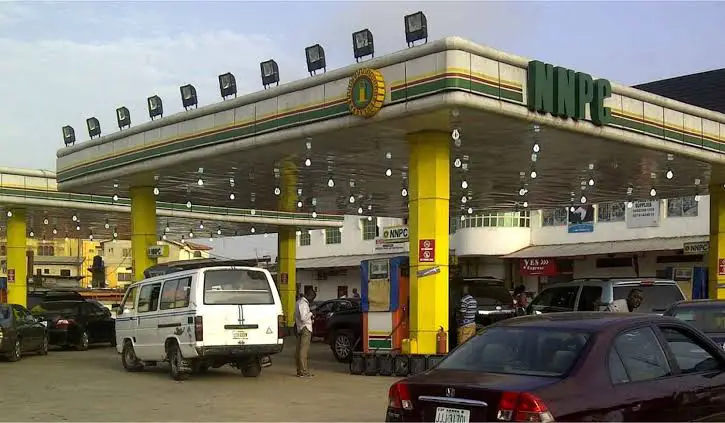Nigeria’s Minister of State for Petroleum Resources, Senator Heineken Lokpobiri, has recently refuted claims that he ordered the Nigerian National Petroleum Company Limited (NNPCL) to cease running its refineries and instead focus on investing in other refinery projects.

This statement came in response to comments made by Engr. Kamoru Busari, the Director of Upstream in the Ministry of Petroleum Resources, during a recent conference in Lagos.
Busari's remarks had sparked confusion, leading to widespread speculation about the future of NNPCL's refinery operations.
In a formal clarification issued on October 8, 2024, Lokpobiri categorically denied any such directive, asserting that the claims did not reflect his position or that of the Federal Government.
He emphasized that NNPCL is an independent entity operating under the Companies and Allied Matters Act (CAMA) with its own management and board of directors.
Therefore, the Ministry of Petroleum Resources does not directly interfere in its operations.
Lokpobiri reiterated the government's commitment to promoting in-country refining and supporting the autonomy of companies like NNPCL.
He stressed that while the government provides strategic guidance to the oil and gas sector, it does not dictate the operational choices of private and corporate entities, including NNPCL.
The Nigerian oil sector has been fully deregulated, allowing companies to function independently and in accordance with international standards for efficiency, transparency, and profitability.
The controversy arose from a speech delivered by Busari, who represented Lokpobiri at a recent oil and gas conference in Lagos.
His remarks suggested that the minister had instructed NNPCL to cease running its own refineries.
This statement led to public concern about the future of domestic refining in Nigeria, particularly in light of the country's efforts to boost its refining capacity and reduce its reliance on imported petroleum products.
This miscommunication prompted Lokpobiri to issue a swift clarification.
The minister made it clear that his ministry, while overseeing the oil sector, respects the independence of NNPCL and encourages it to operate efficiently and in line with global best practices.
His statement also reassured the public that the Federal Government remains committed to fostering local refining capacity to meet Nigeria’s fuel needs.
Implications for Nigeria’s Refining Industry
Nigeria's refining sector has been a focal point of its energy policy in recent years.
The country has long struggled with an overreliance on fuel imports, even though it is one of the world’s largest crude oil producers.
This situation is largely due to the poor performance of Nigeria’s state-owned refineries, which have operated far below capacity for years.
NNPCL, which was previously a government-owned corporation before its transformation into a commercial entity, has been working on revitalizing these refineries.
Efforts include a major project to rehabilitate the Port Harcourt Refinery, alongside investments in new private refinery projects like the Dangote Refinery, which is expected to significantly reduce Nigeria’s fuel import dependency once fully operational.
Lokpobiri’s clarification helps reinforce the government’s commitment to supporting in-country refining.
His emphasis on NNPCL’s operational independence reflects the broader move towards deregulation and market-driven policies in Nigeria’s oil sector.
These reforms aim to enhance competition, improve operational efficiency, and ultimately drive down fuel costs for consumers.
Since its transformation into a limited liability company under the Petroleum Industry Act (PIA), NNPCL has been functioning more like a private-sector entity, with a greater focus on profitability and transparency.
The government’s stance, as clarified by Lokpobiri, is to allow NNPCL and other companies in the sector to operate independently, without direct government control.
This approach is seen as a key component of the ongoing efforts to reform and modernize Nigeria's oil industry.
By encouraging companies to follow global best practices, the government aims to attract more investment in the sector and boost local refining capacity.
In particular, the focus is on ensuring that the existing refineries, such as those in Port Harcourt, Warri, and Kaduna, can be restored to full operational capacity while also supporting investments in new refinery projects.
This will help Nigeria achieve its long-term goal of becoming self-sufficient in refined petroleum products.
What is the current status of NNPCL’s refineries?
NNPCL is currently undergoing efforts to rehabilitate its state-owned refineries, with significant work being done at the Port Harcourt Refinery.
The company is also involved in equity participation in private refinery projects, such as the Dangote Refinery, which is expected to enhance Nigeria’s refining capacity and reduce its dependence on imported fuel.
What does deregulation mean for Nigeria’s oil and gas sector?
Deregulation in the oil sector means that the government no longer sets prices or directly controls the operations of oil companies.
Instead, market forces determine prices, and companies are free to operate independently. This is expected to improve efficiency, attract investment, and ultimately reduce costs for consumers.
How does NNPCL’s independence affect its operations?
As an independent company under CAMA, NNPCL has the autonomy to make operational decisions without government interference.
This allows the company to focus on profitability and efficiency, in line with its new commercial mandate under the Petroleum Industry Act.
What is the Nigerian government’s position on in-country refining?
The government remains committed to increasing Nigeria’s refining capacity. It supports both the rehabilitation of existing refineries and the development of new ones.
By promoting in-country refining, the government aims to reduce the country's dependence on imported fuel, stabilize the domestic fuel market, and create jobs in the energy sector.
Will the miscommunication affect NNPCL’s future plans?
No, the miscommunication has been clarified, and NNPCL will continue to focus on both running its own refineries and investing in other refinery projects.
The company’s independence under CAMA ensures that it can pursue these objectives without government interference.
Lokpobiri's statement serves as a crucial reassurance to both industry stakeholders and the public that the government remains committed to strengthening Nigeria’s refining capacity.
NNPCL's role in this vision remains pivotal, as it continues to navigate its new commercial mandate while aligning with global best practices.
